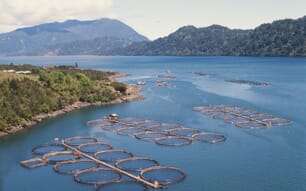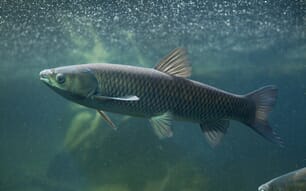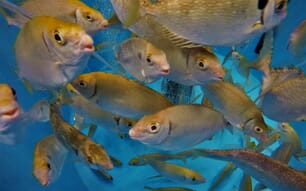This will take the form of a joint quantitative assessment with the US Food and Drug Administration (FDA) of the potential health risks from norovirus contamination in bivalve molluscan shellfish (i.e., oysters, clams, mussels). This Canada-US collaboration is a significant step towards understanding the risks from enteric viruses associated with bivalve molluscan shellfish consumption. The joint risk assessment will inform the enhancement of management practices on both sides of the border and ultimately strengthen food safety measures designed to protect consumers.
The Canadian team includes Health Canada and the Canadian Shellfish Sanitation Programme (CSSP). The CSSP is jointly administered by the Canadian Food Inspection Agency (CFIA), Environment Canada (EC), and Fisheries and Oceans Canada (DFO). The CSSP is a federal food safety program devoted to protecting Canadians from the consumption of contaminated molluscan shellfish. Under the CSSP, the Government of Canada implements controls to verify that only shellfish that meet food safety and quality standards reach domestic and international markets.
(CFIA) The Canadian Shellfish Sanitation Programme (CSSP - http://tinyurl.com/3cu2cnd) is collaborating with the US Food and Drug Administration (FDA) on a joint health risk assessment to evaluate the potential health risks associated with viral contamination in bivalve molluscan shellfish (for example, mussels, oysters and clams). The ultimate goal of the joint health risk assessment is to strengthen food safety measures designed to protect consumers.
Two key objectives of this work are to evaluate the current measures taken to prevent shellfish contaminated with norovirus from reaching consumers, and to identify additional preventative measures that could be used in the future. Altogether, this work is a significant step towards improving our understanding of viral risk and enhancing management practices on both sides of the border.
On behalf of the CSSP partners, the Canadian Food Inspection Agency (CFIA) is inviting interested parties to contribute to the health risk assessment. Information contributed by interested parties and stakeholders may provide robust and relevant data resulting in a more comprehensive health risk assessment.
(Health Canada) The key objective of this work is to conduct a risk assessment that will evaluate the impact of preventive practices and controls on the potential risks of human norovirus illness associated with the consumption of bivalve molluscan shellfish. This will also serve as a tool for assessing the impact of specified control measures currently used to reduce risks from norovirus contamination of bivalve molluscan shellfish in growing waters (i.e. harvest areas), and identifying additional preventive practices and controls that could be used in the future. This information will be used to inform the development of a Food Safety Objective (FSO) regarding norovirus contamination in shellfish and/or growth and harvest waters.
Health Canada establishes policies, regulations and standards related to the safety and nutritional quality of food in order to protect and inform Canadians. In that capacity, Health Canada promotes the importance of basing international food standards on scientific evidence.
On behalf of the participating agencies and departments, Health Canada would like to direct interested parties to http://tinyurl.com/3gjugzp, which describes the project and outlines how stakeholders can contribute to the process.
Health Risk Assessment On Norovirus In Shellfish
CANADA and US - The Government of Canada is collaborating with the Government of the United States to gain a better understanding and interpretation of risks associated with viral contamination in bivalve shellfish.




